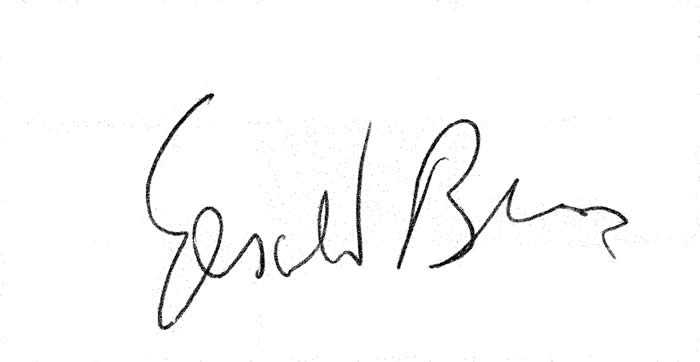
One works for Orlo, artists for environment, says it's her "lifeline to sanity."
We own the sense instead; my love is not a rose because red isn't "red."
![]() Teabags chucked into greenery (the perfect biodegradable object) daily, I'm thinking of Maxine
Teabags chucked into greenery (the perfect biodegradable object) daily, I'm thinking of Maxine
Kumin's new book, still doing those wonderful non-endings, simply stopping, not even entranced
(as I stop walking while thinking), not even by the fact or act of ending, wish her well, one
on a cantata or something rehearsed, like Keats's angel wings crossed over breasts a note
somewhere says you find on his school facade, now in the Victoria and Albert
"with hair blown back" as in St. Agnes' Eve, and it feels (these things do) like a field trip.
We maintain the illusion that things referred to in poems may be come on in the world
as much as nineteenth-century gift books illustrate Keats and Tennyson with engravings.
Miriam, her hair an incredible copper-red, a glory, has a birthday Sunday. A Taurus. Not
so far from Chaucer or Dante dating things by stars, gesture in them toward concreteness.
Stood up with my paint ready to go, a canvas panel Paul used years as a doormat sealed
at the corners with Elmer's, I'm elevated reading Smart's Greek letters for the Seven Pillars
"should be taken as the numbers for which they stood in classical Greek," the proof a quote in Kit's
Jubilate on "a mystery in numbers," the sanity of these things so like mania or hobby, as
the Divine Comedy could have, did have its own horoscope cast, authoritative sound a byproduct
as in Sydney Omarr, "What appeared to be lost cause is just getting started," lines even without quotes
that sound like quotations. Long poems, like love or disaster, encourage superstitions. Even
here, tried fourteen lines that didn't work, forgot the lines, remembered the number, was
pleased that I got seven.
Smart and Pound were both incarcerated for unseemliness, matter and manner immiscibly conjunct.
To care for writings in foreign languages borrow'd from Helena jails you, interrogates librarian. As if,
now, even known languages disorient the writer, AGET ISO peculiar, chrysoprasian Tarot.
Obscurity should properly be ill-resolved connections, otherwise a fig for impropriety reviewed.
So much ill-temper laid in the back pages of reviews (as Shorter Poems's in Library Journal)
got drunk as Crane did on polysyllables in feet, took wrongly as a guarantee of aptness in pat.
"Vertiginous" for instance tricks poets by its sound into thinking they've written a line that it's in,
emphasis like sound of wanting-to-write in writing, meter or allusion comfortable as shorts.
Contemporary poets appear at readings in workshirts, cart-drawing gryphon's eye still a mirror.
Inside the Box (II)
The impulse to speak struck Apollo when he was two hundred years old,
young and tanned. To hell of course with Apollo; that impetus in us
was his also, induced derivation of humanity, startled into speaking much
as we, greeting an Iris by the side of a walk, may touch it to feel how color
becomes softness, petals (it would be) an ideally transparent tissue
if saturated color didn't announce itself as more cool, more like skin.
Apollo, having mentioned the flower, got on all fours even to inspect it;
gods don't think of themselves as gods any more than flowers, so announcing,
think of themselves as flowers. The Iris may be taken as having spoken first.
Now this is social, how a god greets anything. Look, he kissed it.
A finest filament, spider-thin, waves the flower. (You can almost see
vertical gossamer shoot up from his shoulders, wrists, knees and the small
of his back just above the buttocks.) "Agent," he would think himself in Greek.
So is this garden spectacle installed for us, are we less free to hear "Iris"
in Greek from his lips just perfect enough? It's true the smiles of gods
aren't quite like ours. They see so much more, breathe larger views, as we
loving a cat know it'll probably die before we do. Be pleased at the sun on
his lovely body, the Iris (let's say purple) cultivated as he, mortal as he.
Even the lyre, product of another god's craftsmanship, will outlast him
however his gift for song, about humans, seems spontaneously to produce it.
If we survive him, as a being capable of presence, we may be obliged
in the interest of truth to say he exists, if it's said without pretense,
the truth of gods unproblematical as the truth of flowers as if the Lilies
of the Field line in the New Testament contained a trace of envy.

Copyright Gerald Burns 1995-1997